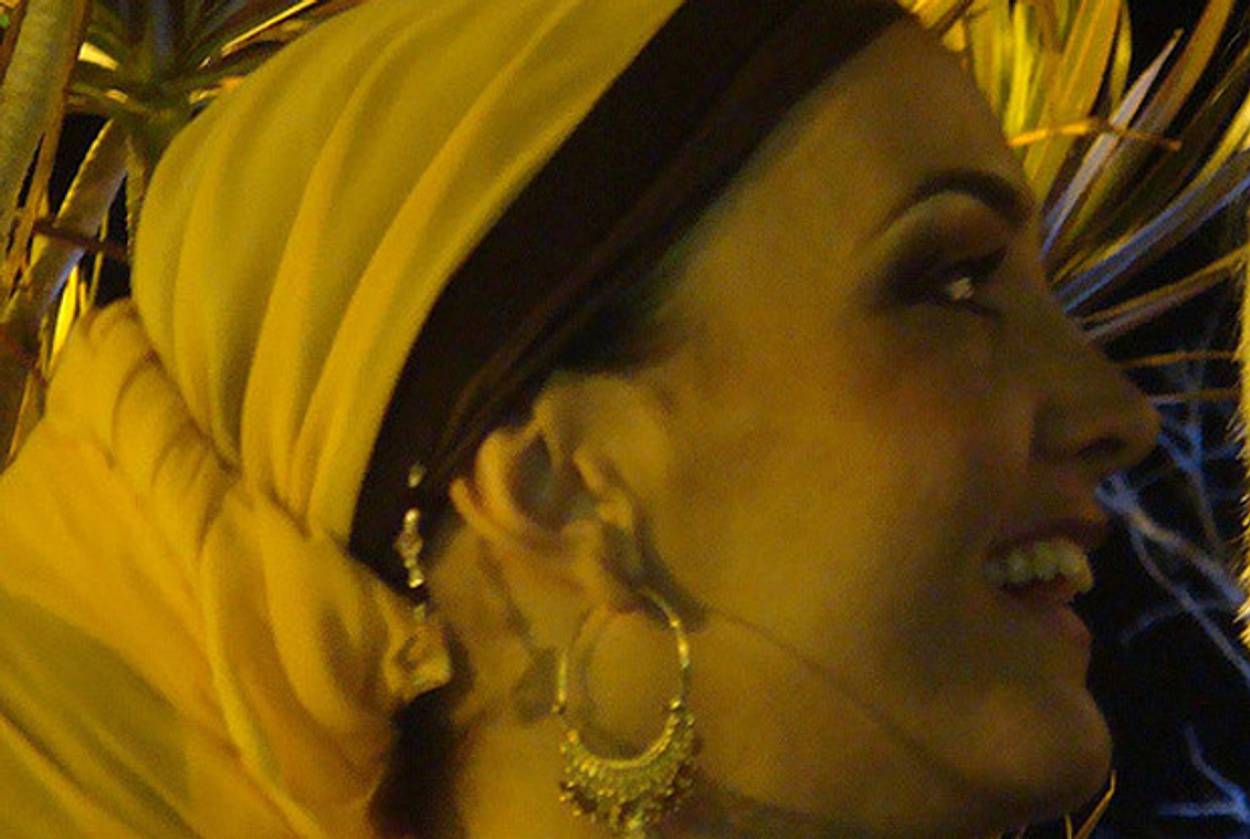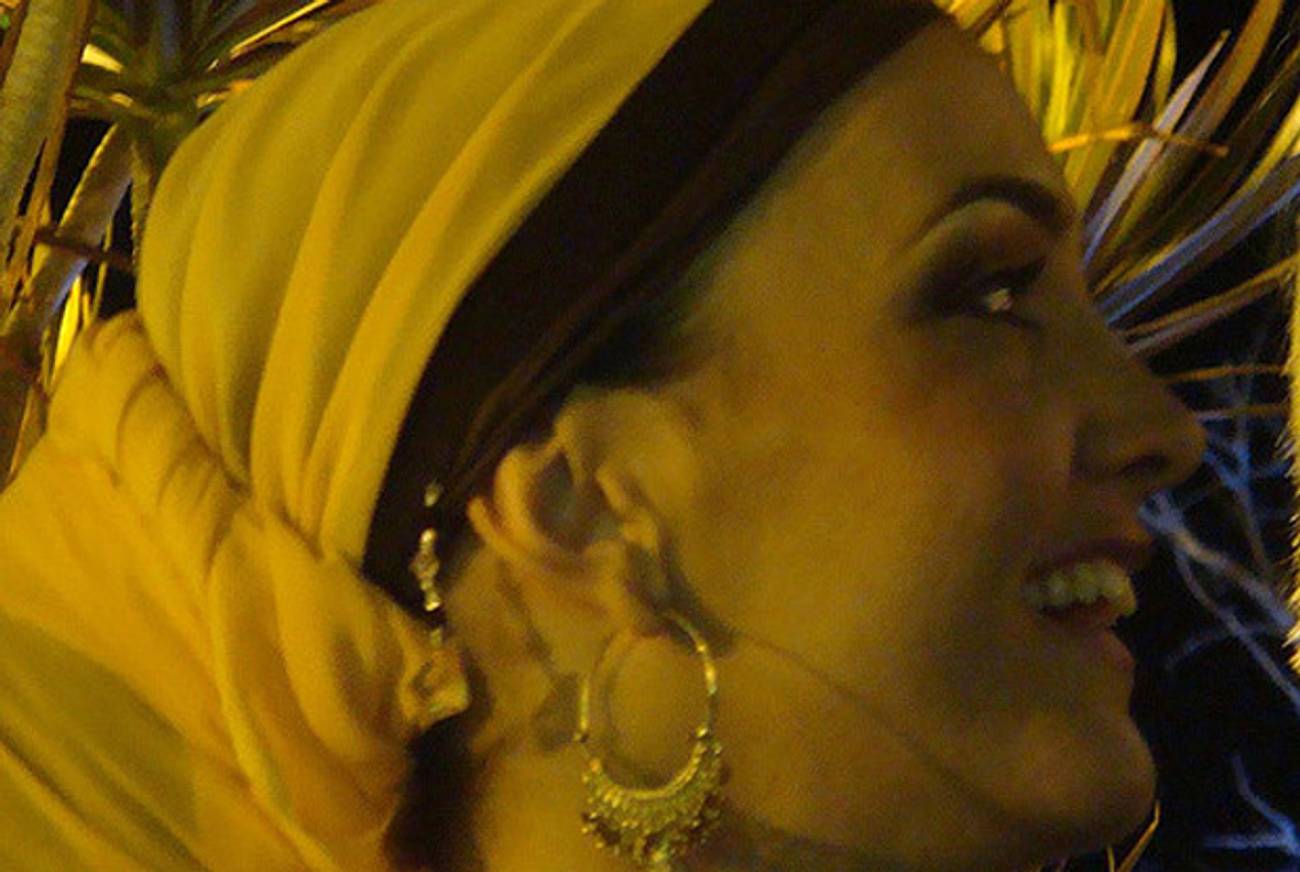Hasidic Woman Sparks To-Do on the Internet
Post about the traditionally Orthodox and women stirs debate




You’d have to be hiding under a rock not to have heard about the various recent articles that have taken on issues (the Internet, abuse, etc.) within the Orthodox world. Yesterday, one “Hasidic Jewish woman” named Chaya wrote that she couldn’t stand what she saw as a pile-on against her kind and published a defense of Orthodoxy that has caused its own choruses of fury and support. Chaya, who’s “also a media professional with a degree in Women’s Studies from a large, very liberal university (magna cum laude, baby!)” took particular exception to the recent media representations of the traditionally Orthodox in the days following their males-only rally against the Internet at Citi Field and, on behalf of her aggrieved brothers, means now to correct misapprehensions.
Nobody in her community, she assures us, forced her to marry her big-bearded husband who’s “also the most handsome, hot, attractive man in the entire world to me.” Nobody in her community has intercourse through a sheet. Mikveh is like a spa, and it’s “awesome.” Because of rules governing purity, Orthodox women do internal self-inspections that mean, ultimately, they “have one of the lowest rates of cervical and other reproductive cancers.” (I’d like to see the science on that—I question the notion that checking whether you still have menstrual blood in your vaginal canal has any relation to detection of ovarian cancer.)
Chaya’s bravado provoked heated responses from the likes of Deborah Feldman (herself the recent object of scrutiny over her tell-all about the Orthodox world), who points out that Chaya is a Chabadnik and ba’alat tshuva, and so her take on the wonders of Orthodoxy may be skewed. Specifically, Chaya chose to join; she wasn’t born into it (I’d like to see the science too on how many native-born traditionally Orthodox women go to very liberal universities). Moreover, one of the tenets of the Chabad movement is outreach—Chaya’s assertions could well be interpreted as evangelizing on behalf of her movement. That’s fine, but “please,” Feldman writes, “refrain from making claims on behalf of Hasidic women you have never met and know nothing about.” When Chaya boasts that nobody in her community would stop her from putting on skinny jeans and snorting cocaine, Feldman sees “stinging condescension in using those two activities as your examples, as if that is all secular people engage in.”
Facebook commenters have made similar, pithy observations. For example: “I’m sure Hasidic women are technically ‘free’ to put on skinny jeans … the same way I’m free to throw a chair through the window of my office building.” Touché. And for Jewcy, Sarah Breger thankfully took a gander at some of the best quickie comments to Chaya’s piece. One choice remark: “Thanks for writing this! I have always been curious. I have more questions …. why do all you Hasidic ladies have the most beautiful, glowy skin?” (Could it be all that internal self-inspection?)
Not everyone has responded with snark, though. Rabbi Eliyahu Fink (a rare male voice in this hoo-ha) took less contentious issue with Chaya’s Chabadnik orientation. “Your personal experience, while wonderful, has no relevance to the world of Hasidic women in the insular sects of Satmar, Ger, Vizhnitz, Square, etc.,” he argued. “More importantly, their world is a world where women are more oppressed than in the rest of orthodox Judaism.”
But what are we talking about here really? Whether Chaya is a proselytizer? Whether Orthodox women have free will and how that is defined, exactly? Whether those of us who are not adherents of traditional Orthodoxy have lost our spiritual way? Whether in general the media fetishize the traditionally Orthodox for their seemingly cultish ways (um, okay, you caught me—I do think there is some cultishness in the most extreme forms of any religion and I do think too the media love to write about it because it all seems so dang zany to the rest of us)? All of these issues come up in this particular smack-down.
Ultimately, though, the question for women who consider themselves feminists is whether the tent is, or even should be, big enough to make room for those who look askance on our more secular lifestyles while they opt to make their priority a kosher home, a (sometimes) shaved head, and a visit to the mikveh. And should we presume to speak for those women who, perhaps, don’t have free will, who are stuck in communities where they are unhappy or abused or fearful? Chaya chose her life; many women—Jews and otherwise—do not.
What Women’s Media Needs to Know About Hasidic Sex [xoJane]
Deborah Feldman Responds [blunt, tom]
What We Can Learn From the xoJane Article About Orthodox Judaism [Jewcy]
Dear Chaya [Pacific Jewish Center]
Earlier: Yiddish, Translated on a Jumbotron
Sara Ivry is the host of Vox Tablet, Tablet Magazine’s weekly podcast. Follow her on Twitter@saraivry.